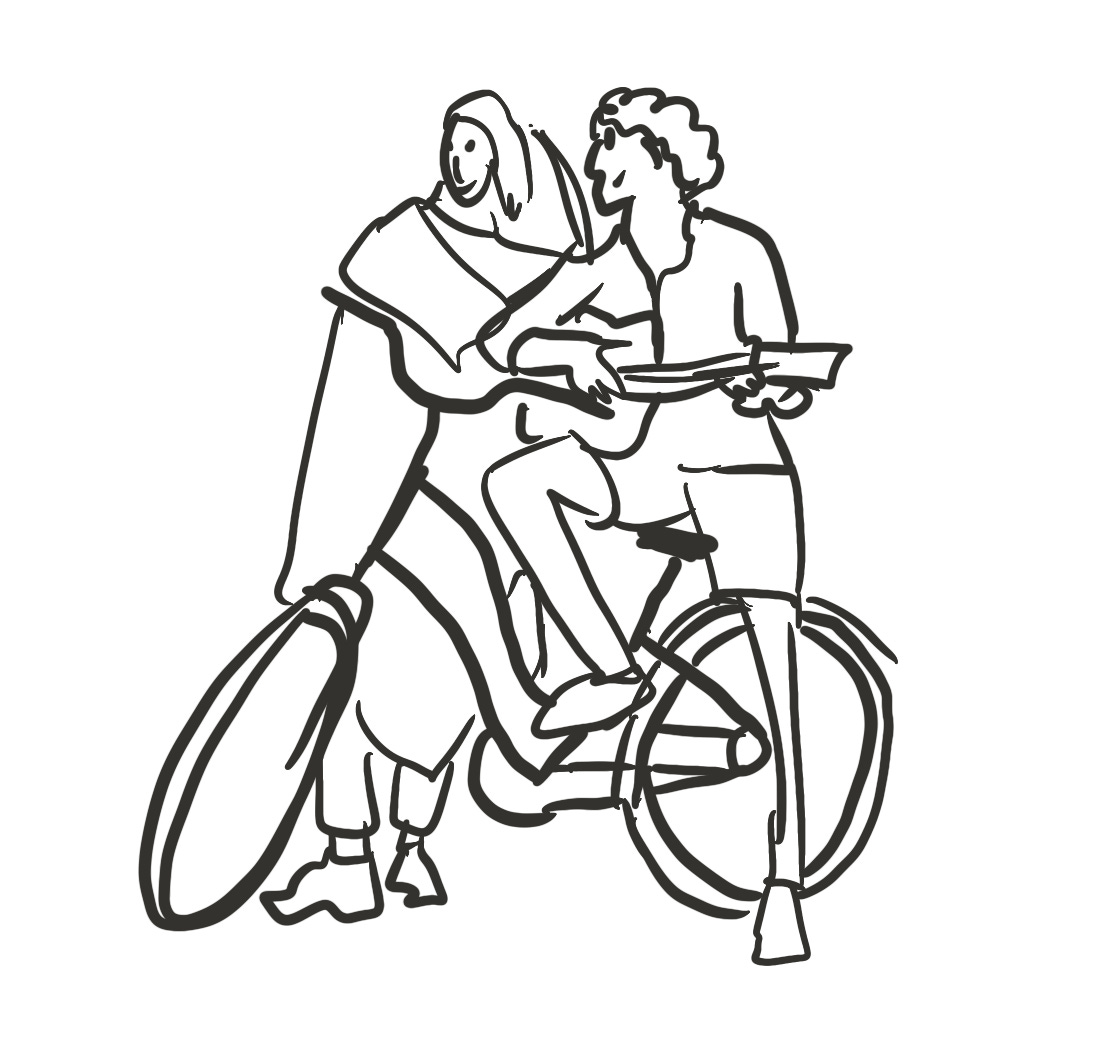🤗 Welcome to the 401st subscriber. Thank to all of you that keep on reading!
🚀 On to 500 subs! Sharing is caring.
Scroll down for the tip, here’s some storytelling:
A week ago, in a typical Dutch setting, I and my date were standing next to our bikes to say goodbye. It was a nice date with some deeper conversation. She asked if she asked too many questions during the date.
Before I could respond, I giggled a little. “Why did you just laugh?”, she asked me. “Well, usually it’s me that asks this question, as sometimes I’m insecure about whether I’m too much” “Not at all”, she responds.
How does this relate to startups? Well, the anecdote above holds a key interview technique. It’s so simple yet has brought me the best answers in any conversation. Let’s go back to 2019.
🎙 From a radio professional
As any millennial in his late 20s, I once had a podcast. Back then, I was trying to make it as a stand-up comedian, and I was depressed. Are the two related? A little, research has shown.
As the depression overwhelmed me, I (retrospectively) set out on a learning journey to talk with comedians about their depression. It was called ‘In de Putcast’; doesn’t translate, in Dutch, that’s a pun that usually gets a giggle, trust me. Please do.
Before I started, I had a talk with Naeeda who had a lot of experience with interviewing at NPO Radio 1, the Dutch public radio.
(I met her via a mutually connected comedian at a panel discussion on the limits of humour. It’s all connected to comedy in one way or another.)
📍 The tip: mention the non-verbals
When I met up with Naeeda, she gave me the best interview tip. When you are talking with someone, do not only listen to the literal words you are hearing back. You are sitting across a human being with a lot of non-verbal communication.
All you need to do is to mention these non-verbals as a question. The person in front of you likely didn’t notice the non-verbal, as it’s a truly honest reflex.

I once was in a client meeting trying to investigate the current innovation approaches at a corporate. I asked the client in front of me: “How do you usually make sure you innovate?” He laughed and started to explain the formal processes, almost wanting to grab the flow charts.
I asked, “Why did you just laugh?”. “Well”, he answered, “that is how it happens on paper, but in reality, it goes [..]”. And then we had a good conversation about what actually goes down.
Because those initial responses are emotional reflexes rather than thought out responses, you get much closer to the person’s true experience.
Some examples
“May I ask what’s the reason you rolled your eyes when I asked that question?”
“Why did you just laugh?”
“That’s a deep sigh, what about it?”
“That’s a relatively short answer, anything to that?”
“I saw you hesitated a little before answering, can you explain me that?”
“That’s a long silence, anything to it?”
You are going to get better answers if you do this.
What about that date?
Back to Amsterdam. I was standing next to my bike—with a guitar, come on—and she to her bike. I realised that I had just given an answer to a question I had never been asked.
I also realised that I told her the above story with the interview technique. She applied it right away, clever girl. Later she joked the technique really working.
Answering that question felt a bit scary at first, as I felt vulnerable in sharing an insecurity of mine. Yet it also felt good to share.
With this technique, you can uncover deeper layers, emotional attachments and attitudes of the person in front of you. You can apply it anywhere, customer interviews, dinner parties and dates.
Curious to hear your stories uncovered with this technique, let me know if you have any!
How was this one?
Great - Good - Meh
For every vote, you save the life of a polar bear cub, I promise.
Need 1-1 startup help?
I help (aspiring) founders build products people want. Do you need to get to your first customer, scope your MVP or develop your business model?
Check out some testimonials and my way of working below or schedule a free mentoring intake below.
Need feedback on your startup program?
I designed over 10 entrepreneurship and courses at a variety of institutions, covering lean startup, agile working, design thinking and full accelerator programs. As my research covers entrepreneurship education, I would love to help your program to become better.




